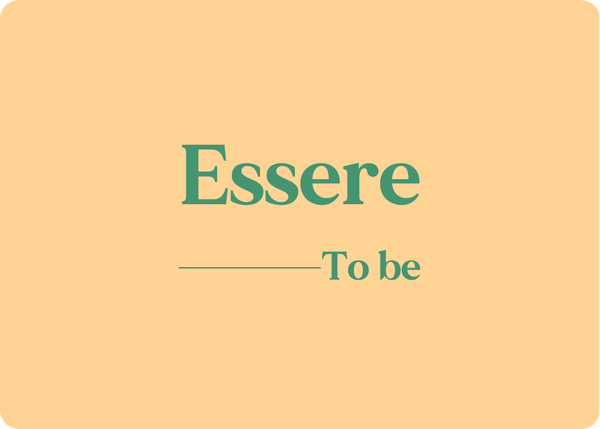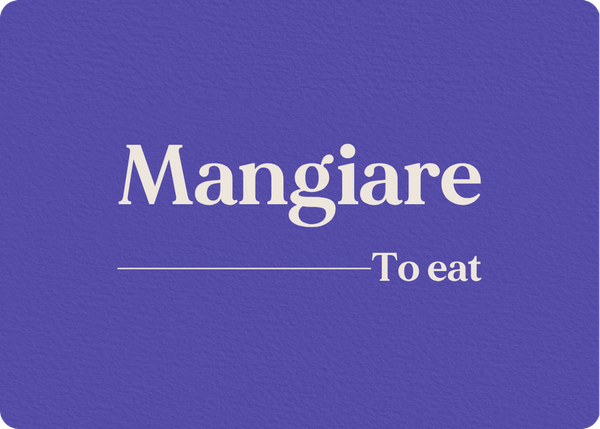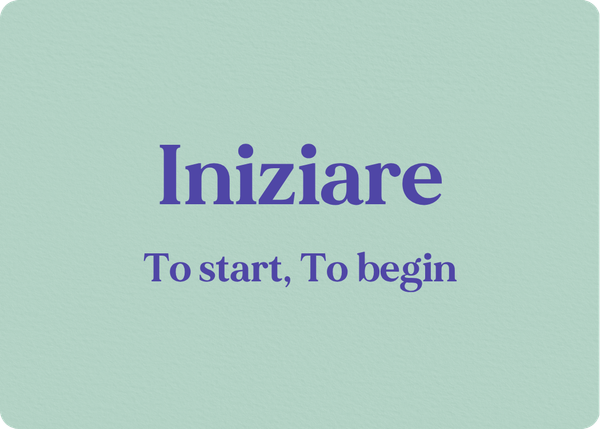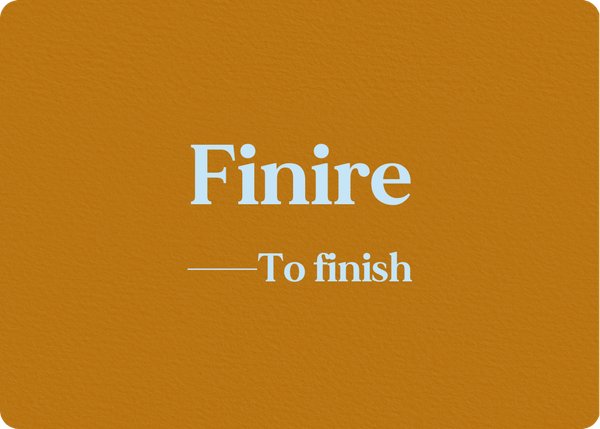What is Essere?
Essere is one of the most fundamental Italian verbs meaning "to be". While it appears to belong to the second conjugation (-ERE verbs), it actually has its own completely unique conjugation pattern that doesn't follow any standard Italian conjugation rules. This essential verb is absolutely crucial for describing states of being, forming the passive voice, and serving as an auxiliary verb for compound tenses with certain verbs. Along with "avere", it is one of the first verbs every Italian learner must master.
Key Features of Essere:
- Type: Has its own unique conjugation (not following standard -ERE patterns)
- Meaning: To be
- Irregularities: Irregular in all tenses and moods
- Auxiliary verb: "Essere" uses itself as its own auxiliary in compound tenses (Sono stato - I have been)
Indicativo – Indicative Mood
Presente (Present Tense)
| Person | Conjugation |
|---|---|
| io | sono |
| tu | sei |
| lui/lei | è |
| noi | siamo |
| voi | siete |
| loro | sono |
Example:
Amanda e Silvia sono migliori amiche.
Amanda and Silvia are best friends.
Passato Prossimo (Present Perfect)
| Person | Conjugation |
|---|---|
| io | sono stato/a |
| tu | sei stato/a |
| lui/lei | è stato/a |
| noi | siamo stati/e |
| voi | siete stati/e |
| loro | sono stati/e |
Example:
L'anno scorso Luigi è stato in Francia.
Last year Luigi was in France.
Imperfetto (Imperfect)
| Person | Conjugation |
|---|---|
| io | ero |
| tu | eri |
| lui/lei | era |
| noi | eravamo |
| voi | eravate |
| loro | erano |
Example:
Da bambino ero molto timido.
As a child I was very shy.
Trapassato Prossimo (Past Perfect)
| Person | Conjugation |
|---|---|
| io | ero stato/a |
| tu | eri stato/a |
| lui/lei | era stato/a |
| noi | eravamo stati/e |
| voi | eravate stati/e |
| loro | erano stati/e |
Example:
Era stata a Roma diverse volte prima di trasferirsi lì.
She had been to Rome several times before moving there.
Passato Remoto (Simple Past)
| Person | Conjugation |
|---|---|
| io | fui |
| tu | fosti |
| lui/lei | fu |
| noi | fummo |
| voi | foste |
| loro | furono |
Example:
Marco Polo fu un famoso esploratore veneziano.
Marco Polo was a famous Venetian explorer.
Trapassato Remoto (Past Anterior)
| Person | Conjugation |
|---|---|
| io | fui stato/a |
| tu | fosti stato/a |
| lui/lei | fu stato/a |
| noi | fummo stati/e |
| voi | foste stati/e |
| loro | furono stati/e |
Example:
Dopo che fu stato in ospedale per settimane, riprese gradualmente le forze.
After he had been in the hospital for weeks, he gradually regained his strength.
Futuro Semplice (Simple Future)
| Person | Conjugation |
|---|---|
| io | sarò |
| tu | sarai |
| lui/lei | sarà |
| noi | saremo |
| voi | sarete |
| loro | saranno |
Example:
In primavera i ciliegi del giardino saranno in fiore.
In spring the cherry trees in the garden will be in bloom.
Futuro Anteriore (Future Perfect)
| Person | Conjugation |
|---|---|
| io | sarò stato/a |
| tu | sarai stato/a |
| lui/lei | sarà stato/a |
| noi | saremo stati/e |
| voi | sarete stati/e |
| loro | saranno stati/e |
Example:
Quando tornerai a casa, sarò già stata in palestra.
When you return home, I will have already been to the gym.
Congiuntivo – Subjunctive Mood
Presente (Present Subjunctive)
| Person | Conjugation |
|---|---|
| che io | sia |
| che tu | sia |
| che lui/lei | sia |
| che noi | siamo |
| che voi | siate |
| che loro | siano |
Example:
Penso che Federica sia una ragazza molto sensibile.
I think that Federica is a very sensitive girl.
Passato (Past Subjunctive)
| Person | Conjugation |
|---|---|
| che io | sia stato/a |
| che tu | sia stato/a |
| che lui/lei | sia stato/a |
| che noi | siamo stati/e |
| che voi | siate stati/e |
| che loro | siano stati/e |
Example:
Dubito che Paolo sia stato sincero con noi.
I doubt that Paolo was sincere with us.
Imperfetto (Imperfect Subjunctive)
| Person | Conjugation |
|---|---|
| che io | fossi |
| che tu | fossi |
| che lui/lei | fosse |
| che noi | fossimo |
| che voi | foste |
| che loro | fossero |
Example:
Credevo che tu fossi più giovane.
I thought you were younger.
Trapassato (Past Perfect Subjunctive)
| Person | Conjugation |
|---|---|
| che io | fossi stato/a |
| che tu | fossi stato/a |
| che lui/lei | fosse stato/a |
| che noi | fossimo stati/e |
| che voi | foste stati/e |
| che loro | fossero stati/e |
Example:
Se fossi stato più attento, non avrei perso il treno.
If I had been more attentive, I wouldn't have missed the train.
Condizionale – Conditional Mood
Presente (Present Conditional)
| Person | Conjugation |
|---|---|
| io | sarei |
| tu | saresti |
| lui/lei | sarebbe |
| noi | saremmo |
| voi | sareste |
| loro | sarebbero |
Example:
Saremmo felici di vivere vicino al mare.
We would be happy to live near the sea.
Passato (Past Conditional)
| Person | Conjugation |
|---|---|
| io | sarei stato/a |
| tu | saresti stato/a |
| lui/lei | sarebbe stato/a |
| noi | saremmo stati/e |
| voi | sareste stati/e |
| loro | sarebbero stati/e |
Example:
Tu saresti stata una grande musicista con un po’ più di pratica.
You would have been a great musician with a little more practice.
Imperativo (Imperative)
| Person | Conjugation |
|---|---|
| (tu) | sii |
| (lui/lei) | sia |
| (noi) | siamo |
| (voi) | siate |
| (loro) | siano |
Example:
Sii gentile con i tuoi compagni!
Be kind to your classmates!
Indefinite Moods
Infinito (Infinitive)
- Presente (Present): essere (to be)
- Passato (Past): essere stato/a (to have been)
Examples:
Mi piace essere puntuale agli appuntamenti.
I like to be punctual for appointments.
Mi dispiace essere stato scortese ieri.
I'm sorry for having been rude yesterday.
Participio (Participle)
- Passato (Past): stato/a (been)
Examples:
Marina è stata contenta del risultato raggiunto.
Marina was happy with the result achieved.
Gerundio (Gerund)
- Presente (Present): essendo (being)
- Passato (Past): essendo stato/a (having been)
Examples:
Essendo una giornata di sole, organizzarono un picnic.
It being a sunny day, they organized a picnic.
Essendo stato molte volte a Torino, conosco bene la città.
Having been to Turin many times, I know the city well.
The verb Essere at a glance: Key tenses you need
| Present | Present Perfect | Imperfect | Present Subjunctive | Imperfect Subjunctive | Present Conditional |
|---|---|---|---|---|---|
| io sono | io sono stato/a | io ero | che io sia | che io fossi | io sarei |
| tu sei | tu sei stato/a | tu eri | che tu sia | che tu fossi | tu saresti |
| lui/lei è | lui/lei è stato/a | lui/lei era | che lui/lei sia | che lui/lei fosse | lui/lei sarebbe |
| noi siamo | noi siamo stati/e | noi eravamo | che noi siamo | che noi fossimo | noi saremmo |
| voi siete | voi siete stati/e | voi eravate | che voi siate | che voi foste | voi sareste |
| loro sono | loro sono stati/e | loro erano | che loro siano | che loro fossero | loro sarebbero |
Conclusion
Mastering the conjugation of "essere" is absolutely essential for Italian communication. This completely irregular verb requires memorization of its unique forms in all tenses, especially the present tense (sono, etc.).
Remember the key points:
- Completely irregular in all tenses and moods
- Essential auxiliary verb for many common verbs
- Agreement of past participle when used as auxiliary (sono andato/a)
- Used to express identity, characteristics, location, and profession
- Foundation for understanding Italian grammar structure
Keep practicing with real sentences and soon you'll master this fundamental Italian verb!





